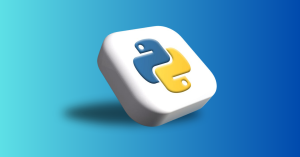The dream for most startups is to build something new, innovative, disruptive, and beloved by their target audience. In the modern world, this means developing a unique program or piece of software. You may have an idea for a mobile app that will change the way people do something. You may want to create a platform that transforms an industry. Or maybe you want a website that will knock the competition out of the park. To do this, your startup needs to hire developers; programmers who can turn your vision into reality using lines of code. However, if your founders are not programs (or even if you are), the process of hiring the full-stack development team your innovative startup idea requires is a unique challenge.
At Parallel Staff, hiring technical talent for each unqiue purpose is what we do best. This article is a comprehensive guide for startups to help you define what you need, the skills they must have, and how to build a team of developers to achieve your goals.
The four key considerations when hiring developers for a startup are these:
- What You Want to Build
- What Kind of Developers You Need
- Where to Find Your Developers
- How to Interview Developers
1. Discover What You Want to Build is the First Step to Hire Developers
First, and most importantly, you must know the product that you want to build. Before you hire developers to bring it to life, the project itself will need to be defined. This is a good time for wireframes – a rough sketch of what you want it to look like, what it should do, and how users should interact with it. Try to define everything about the digital product that is to be created.
Think of your vision as a house and your developers as the builders. Only you can know whether your vision includes a fireplace or a grand staircase (or perhaps a gamified loyalty system inside a mobile app), and it can only be built once it is defined.
- The Size, Complexity, and Features
- How Users Will Interact With It
- Unique Qualities (UVP)
Size, Complexity, and Features
How big is the product you want to create? Consider whether you are looking to create a streamlined mobile app, an interactive website, or a vast multi-purpose platform with multiple functions. Will your program have a few simple features or a long list of features? Will it require a great deal of complex calculation on the back-end to create interactive dashboards and AI-driven insights, will it be a simple game, or offer quick calculations?
What your program is supposed to do will define what kind of developers you need to make it happen, including skill level and the size of your team.
How Users Will Interact With It
Next, determine how users will interact with your program. This matters more than you might think, as each interaction type will require different programming languages. If you want an app that works across the board with web, mobile, cloud, and standalone, you will need a full suite of developers to achieve it, compared to needing just one web dev or mobile dev to make it happen.
- Web
- Mobile
- Platform
- Standalone
Unique Qualities (UVP)
What makes your startup’s digital product unique? Consider what you want your unique value proposition (UVP) to be. What makes your app stand out compared to others in your field. This is the defining feature, functionality, or structure that you will need to make sure your developer team can bring to life.
To Hire Developers, Find out What Kind of Developers You Need
Now that you know what is to be created, in great detail, you are ready to define the types of developers you will be hiring for. Most devs have one or more skillsets, but no one person can do it all. Consider the skillsets you are hiring for based on what the program needs to do and the structure you hope to create.
- You Are Building a Team
- Sys Admin vs Cloud Architect
- Web Dev / Mobile / Desktop
- Back End vs Front End vs Full Stack
You Are Building a Team
You are building a team of developers who can cover all of your bases efficiently. Even architects and full-stack developers do not know every programming language and cannot be experts at every aspect of development. You will likely need at least two or three people, and a larger team to achieve more widespread goals like multi-channel performance and larger platform functionality. Spreading out the work, the right way, can also speed development.
Sys Admin vs Cloud Architect
At the foundation, you will likely need a sys admin and/or cloud architect. Cloud architects are the natural evolution of a system’s admin as company systems have moved to the cloud, but both role titles comprise similar skillsets and are sometimes used interchangeably.
This is the person who will handle your host servers, data structures, and performance uptime. Continuing the house metaphor, they handle the street, address, utilities, foundation, and framework of your startup’s unique program.
Web Dev / Mobile / Desktop
Based on how your audience will access your digital product, you will need developers who specialize in each framework and the programming languages therein. Web developers use HTML, CSS, Java, and Javascript. Mobile developers use Xamarin, Swift, and Java. Desktop developers use C, C#, and/or C++
Back End vs Front End vs Full Stack
Lastly, there is the distinct difference in specialities between back-end, front-end, and full-stack. A back-end developer specializes in framework and functionality. A front-end developer specializes in UI/UX interactions and presentation. A full-stack developer is someone who has taken the time to learn both framework and UI and how they work together.
Where to Find Your Developers
When you know who you are looking for, it’s time do identify where you will source them. As a startup, you have access to a wide range of recruitment options, and each has unique pros and cons when it comes to identifying and sourcing new developers for your project. These are all avenues for meeting people with a context that can inform you about either their hard technical skills or soft employment skills based on how you build the connection.
- Referrals
- Conferences and Events
- Job Portals
- Social Media
- Communities and Messengers
- Recruitment Services
Referrals
Referrals may come from people you’ve worked with before who have worked with certain developers. It’s great if you can get a referral for exactly the type of developer you need, but these are also the most human in contact. You may get referrals for people who have worked well on a particular team, but the quality of the referral will also depend on how well the referring person understands your tech needs and the capabilities of the referred dev.
Conferences and Events
Conferences and networking events are a way to meet professionals of a particular speciality, which can be exactly what you’re looking for. If you want to build a team for an innovative new mobile app, attending a mobile development conference can help you meet many, many mobile developers in a wide range of specialities and ability levels. However, a dev’s ability to be charming at a conference still leaves their hard skills to be assessed.
Job Portals
Job portals are a typical go-to route when it comes to recruitment and allow a resume to be your first point of contact. However, this route leaves the most to mystery as you will need to assess both hard skills and soft skills, and you are limited to those devs who are currently searching for jobs on the platforms you chose – and who are drawn to the job descriptions you write.
Social Media
Social media can be a great place to meet devs in shared communities or to access communities of technical talent online. You can advertise jobs there, receive referrals, and judge online soft skills in a shared environment, but you are also limited to developers who spend time socializing on social media and who know how to network, which is not a full scope.
Communities and Messengers
You can also meet developers through communities and messenger systems like Slack and Discord where people with shared skills and interests gather. These platforms are unique and you will need to explore specific ways to market or network through them.
Recruitment Services
Lastly, you can work with a recruitment service that will utilize a wide range of talent sourcing and can help you with the early stages of assessing the hard skills, soft skills, and company fit that you need to build a capable team of developers for your startup.
Hire Developers the Right Way by Learning How to Interview Them

The final step is the interview process in which you aim to determine which developers have the technical skills and the ability to collaborate that you need to bring your startup’s innovative new digital product to life.
- Comparing Diverse Dev Work Histories
- Soft Skills: What Makes a Good Employee
- Hard Skills: What They Can Do
- Company Fit / Cultural Add
Comparing Diverse Dev Work Histories
Once you have sourced potential developer hires, start with the resumes you have collected. Remember that developers come from many different paths, so it is more difficult to compare resumes on a 1:1 basis than in most fields. Consider diverse work histories, projects they have worked on, years of experience, and certifications, as these factors will likely be more important than comparing things like college degrees or a steady progression of office jobs.
Soft Skills: What Makes a Good Employee
If you have experience as a hiring manager, you may already be able to assess basic soft skills during the interview process. These include professional decorum, punctuality, the ability to meet a schedule, to problem-solve with others, and work creatively to solve a problem. Soft skills are essential in developer teams because collaboration is a must and, of course, because they will be employees on your team.
Hard Skills: What They Can Do
Hard skills can be more difficult to assess if you, yourself, are not a developer. It is very important to separate skilful interviewing and socializing from the ability to produce working code or the ability to code with others. You will need to see what they can do and determine who has the skills you need specifically to create the digital product you have outlined.
-
Borrow an Expert
- The leading method to determine the hard skills of a developer is to borrow an expert. If you have a CTO who understands programming, they may be your go-to. But you can also work with a recruiting firm, hire developers, or a temporary expert to help with technical interviews.
-
Use Skill Tests
- In some cases, a skill test can help you assess how skillful developers are able to work within their programming languages and frameworks. This can help sort people who have padded their resumes with technical buzzwords vs those who know their stuff. However, not all skill tests are built to assess the skillset you need, and self-taught devs may have practical skills without knowing the “standard exercises” that skill tests may assume are known.
-
Assess Demos
- One effective and sometimes-practical approach is to ask for a demo – either previous work or a quickly assembled example of working code.
Company Fit / Cultural Add
Finally, your interview process should determine whether each developer will be a good fit for your startup, person to organization. Do they like the hours you work, the pay you can offer, or the team you are building? Are they excited about the product to be created? Can they work well with the people already on your team? This is when interviewing becomes a two-way street. It’s when both parties benefit from two-way transparency to make sure the fit is right.
Parallel staff can help you build a list of skilled candidates and the expertise necessary to assess both their hard skill and soft skill fit for your team. Whether you are building a vast innovative platform or a streamlined new app, we can help you hire developers with the skills and teamwork necessary to bring your vision to light. Contact us today to begin your search.






